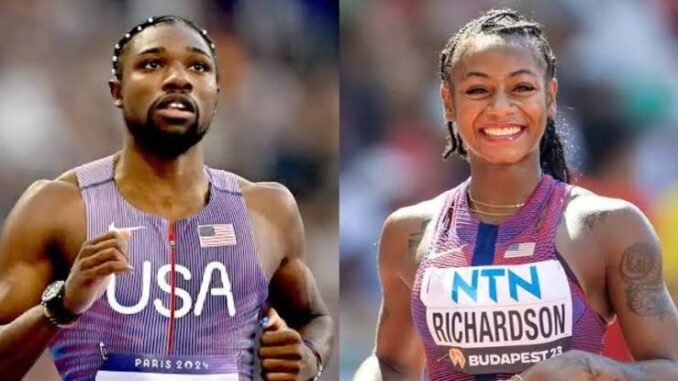
Sha’Carri Richardson has never been one to bite her tongue, and once again, the outspoken American sprint star has ignited a firestorm of debate in the track and field world. At the Tokyo Athletics Championships, Richardson openly criticized World Athletics for what she described as “unfair and insulting” prize money for gold medal winners. According to Richardson, the current reward of $70,000 for a gold medal – up from just $60,000 in 2015 – does not reflect the level of performance, training, and global entertainment that elite athletes bring to the sport.
Speaking to reporters after winning her 100m heat, Richardson said, “How can we be the main attraction, filling stadiums and bringing millions of viewers worldwide, and yet the prize money barely changes in a decade? This is 2025, not 2015. Costs of living are higher, sponsorship deals are harder to secure, and our careers are short. We deserve better.”
Her comments immediately trended online, with fans divided between those applauding her courage and those accusing her of being ungrateful. Some argued that the prestige of a world title should outweigh the financial reward, but Richardson doubled down, insisting that athletes are professionals who deserve to be compensated fairly for their work.
Richardson’s remarks quickly caught the attention of fellow sprinter Noah Lyles, who added fuel to the conversation with a statement that left the athletics world buzzing. The reigning 100m and 200m champion took to social media to say, “Sha’Carri is right. We’re not asking for millions. We’re asking for respect. The NBA, NFL, and even tennis and golf players earn far more for their performances. Why is track still stuck in the past?”
Lyles’ comparison to other sports struck a chord with fans and athletes alike. Many pointed out that track and field athletes often train just as hard – if not harder – as their counterparts in team sports but have far fewer earning opportunities. Sponsorship deals tend to favor only the top one or two names, leaving the majority of athletes struggling to fund their training and travel expenses.
This controversy has put World Athletics under pressure to address growing calls for reform. Analysts say that prize money increases have lagged behind inflation, meaning today’s gold medal payout is worth less in real terms than it was a decade ago. Some insiders suggest that Richardson’s public challenge could push the organization to rethink its revenue distribution model, particularly since broadcast rights and sponsorship income have increased in recent years.
Fans will now be watching closely to see how World Athletics responds. Will they remain silent, risking further backlash, or will they use this moment to signal a commitment to better supporting athletes?
What’s clear is that Richardson and Lyles have forced the conversation into the spotlight. Whether one agrees with them or not, their voices are reshaping the debate on athlete compensation and demanding that track and field evolve to meet modern expectations.
Be the first to comment